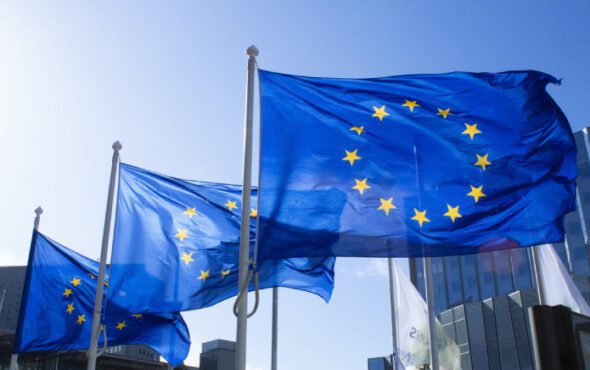
A European court has upheld the rights of self-employed LGBTQ+ workers across the EU in a ruling on a Polish case brought by a gay freelance TV editor who said he was wrongfully dismissed by the public broadcaster over his sexuality.
The ruling by the Luxembourg-based Court of Justice of the European Union (CJEU) last week said self-employed workers should have the same protections against workplace discrimination as permanent employees.
A Polish court hearing the editor’s demand for compensation went to the CJEU to seek clarification on whether Poland’s anti-discrimination act protects business-to business contractors, or if a company has broad freedom when deciding who to contract.
The ruling could add to tension between Warsaw and Brussels over EU values, particularly when it comes to LGBTQ+ rights in Poland.
Here’s what it means for LGBTQ+ rights in Poland and the rest of Europe.
What has just happened and what does it mean for LGBTQ+ workers’ rights in Poland?
When a freelance TV editor in Poland, whom the CJEU did not name, posted a video to YouTube promoting tolerance of same-sex couples, Polish broadcaster Telewizja Polska ended his shifts despite several years as a regular freelancer.
He then sued the public TV company for damages, claiming he had been discriminated against on the basis of his sexual orientation.
Seeking clarification on the scope of EU worker protections, a Polish court referred the case to the CJEU, which ruled that existing EU laws that cover LGBTQ+ rights for staff include self-employed workers.
LGBTQ+ rights campaigners have welcomed the judgment as an important step in clarifying the anti-discrimination protections that apply to LGBTQ+ self-employed people in Poland and across the EU.
“It’s not a turning point, but a strong reminder to the Polish government that their disrespect of the human rights of LGBTI people is unlawful in the EU,” said Arpi Avetisyan, head of litigations at LGBTQ+ rights organisation ILGA-Europe, adding that implementation could take time.
“Looking at the … general hostile attitude towards LGBTI people by Polish authorities and the poor track record of implementation of human rights judgments in general, it’s unlikely that this judgment will be implemented any time soon,” Avetisyan added.
Poland’s representative to the CJEU did not reply to a request for comment.
What does this mean for the EU and Poland’s ongoing row over LGBTQ+ rights?
Because CJEU rulings are binding, Polish courts must follow the judges’ interpretation of EU law. As yet no date has been set to resume the original case in the Polish courts.
It is not clear whether the Polish Equality law needs to be amended in order to enforce the ruling, but it is clear that the article in question cannot be applied to self-employed workers, said Milena Adamczewska-Stachura, one of the lawyers for the LGBTQ+ worker in the case before the CJEU.
However, if national courts do not apply the decision, the European Commission can initiate infringement procedures that could result in large fines, she added.
LGBTQ+ rights have become an increasingly divisive issue in Poland with the ruling Law and Justice Party (PiS) seeing them at odds with what it describes as “traditional values”.
In 2019, several local authorities declared themselves “LGBT-free zones“, putting them on a collision course with the European Commission, which threatened to pull EU funding.
In 2021, the Commission announced an infringement procedure against Poland for the violation of the fundamental rights of LGBTQ+ people.
How do other European countries compare in terms of LGBTQ+ workplace protection rights?
Guarding against discrimination on the grounds of sexual orientation has been part of EU employment rules since 2000.
But, 20 years on, a survey by the EU Agency for Fundamental Rights found concerns remain over whether full equality in terms of protection from discrimination has been achieved.
There are “very big differences” among EU countries in terms of the extent of LGBTQ+ discrimination, Tom Schraepen, a consultant on inclusive growth for the Brussels-based Bruegel think-tank, told Openly.
In cases of self-reported discrimination, Lithuania has the largest number with 32% of respondents reporting issues at work or when looking for a job, followed by Greece with 32% and Bulgaria and Cyprus both with 31%. Hungary and Poland followed with 27% and 26% respectively.
Countries with the lowest rates of 14% or 15% included Finland, Denmark, the Netherlands and Sweden.
In Belgium, a study by recruitment site StepStone showed work-related discrimination issues were particularly acute for transgender people, who were either not invited to interview or left their jobs due to discrimination.
Reporting by Joanna Gill.
GAY TIMES and Openly/Thomson Reuters Foundation are working together to deliver leading LGBTQ+ news to a global audience.



